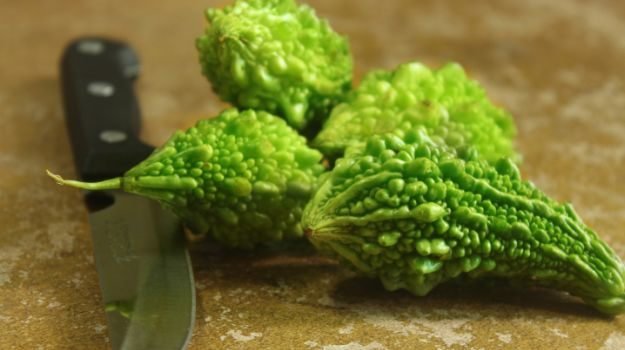
According to WHO, the global prevalence of diabetes among adults over 18 years of age has risen from 4.7% in 1980 to 8.5% in 2014. If the statistics aren't murky enough for you, the WHO also says that diabetes may emerge to be the seventh leading cause of death in 2030. Diabetes refer to a group of metabolic diseases that result in surged blood sugar (glucose levels). The problem is not just the raised blood sugar alone, if the diabetes is not managed well, it may result in obesity, kidney failure and stroke. While scientist across the world are working continuously to find a cure to the metabolic disease. There are enough number of ways through which you can monitor your blood sugar levels to a great extent. One of them is through your diet. If you are suffering from diabetes refined carbs are a strict no-no. Make sure your diet is loaded with complex carbs instead. Diabetics are also recommended to take low glycaemic index foods. The glycaemic index (GI) is a relative ranking of carbohydrate in foods according to how they affect blood glucose levels. Carbs with low GI value (55 or less) are digested, absorbed and metabolised slowly and cause a gradual rise in blood glucose. It is a common knowledge that diabetics are often asked to steer clear of sugary foods, for it may have cause your blood sugar levels to rise. What many do not know that loading up on some low carb, bitter veggies and foods could effectively manage blood sugar levels
Here are some bitter foods that you must add to your diet to manage diabetes better:
- Bitter Gourd
Its bitter-pungent taste makes it a tad hard for everyone to palate. But, once you develop a taste for it, there is just no looking back. Diabetics must include bitter gourd or bitter melon in their diet. It helps make your insulin active, your sugar would be used adequately and not convert into fat, which would eventually help in weight loss too. Bitter gourd contains an insulin-like compound called Polypeptide-p or p-insulin, which has been shown to control diabetes naturally. These substances either work individually or together to help reduce blood sugar levels.
(Also Read:How To Make Karela Juice: Easy Tips To Make The Healthful Beverage)
Bitter gourd contains an insulin-like compound called Polypeptide-p
- Kale
The non-starchy leafy wonder has quite a following in the world of health and nutrition. You may have heard how its high fibre content helps in weight loss. But, that is not all what fibre is capable of. High fibre veggies, like kale, have the ability to induce satiety, it takes the longest to digest. This in turn ensures that it is not metabolised quickly, and cause spike in blood sugar levels.
(Also Read: Kale Nutrition: Amazing Kale Nutrition Facts And Health Benefits)
The non-starchy leafy wonder has quite a following in the world of health and nutrition
- Fenugreek
Fenugreek is excellent for regulating blood sugar levels. It helps regulate insulin resistance, making it more responsive and sensitive. That is why it is commonly advised to diabetics.
(Also Read: Fenugreek Water Benefits: 5 Reasons to Drink This Up Every Morning)
Fenugreek seeds are rich in folic acid, Vitamin A, Vitamin K and Vitamin C.
- Spinach
Spinach is an excellent non-starchy and diabetic-friendly vegetable you can add to your diet. Spinach also contains a good quantum of fibre, which prevents spike in blood sugar levels. Spinach has very low glycaemic index and glycaemic load values. In addition, spinach is a rich source of vitamin A and lutein, vitamin C, vitamin E, vitamin K, magnesium, manganese, folate, iron, vitamin B2, calcium, potassium, vitamin B6, folic acid, and copper. It was not for nothing that Popeye gushed about the leafy greens it seems.
Spinach is a rich source of plant-based omega 3s and folate
- Sesame Seeds
The medicinal effects of sesame seeds and the oil found in them are popular across India. The bitter seeds help control blood sugar levels and are beneficial for your colon health, too, since they are high in calcium and magnesium. In a study carried by journal of Clinical Nutrition in 2011, participants with type 2 diabetes who were given sesame oil with diabetes medication had greater reduction in blood sugar levels than those who were not given sesame oil.
These tiny seeds are perfect for garnishing and topping
Include these in your diabetes diet and see the results for yourself!
Great.. nice post..
I don't have diabetes but I like few items like bitter guard, spinach mentioned in the post very much
Thanks bro For Such Comments but pls retry tell about it to ur relatives
Very nice. Your post will be helpful for daibtic person.
Thanks mam for Taking interest in it Pls share this to ur collegues and family members